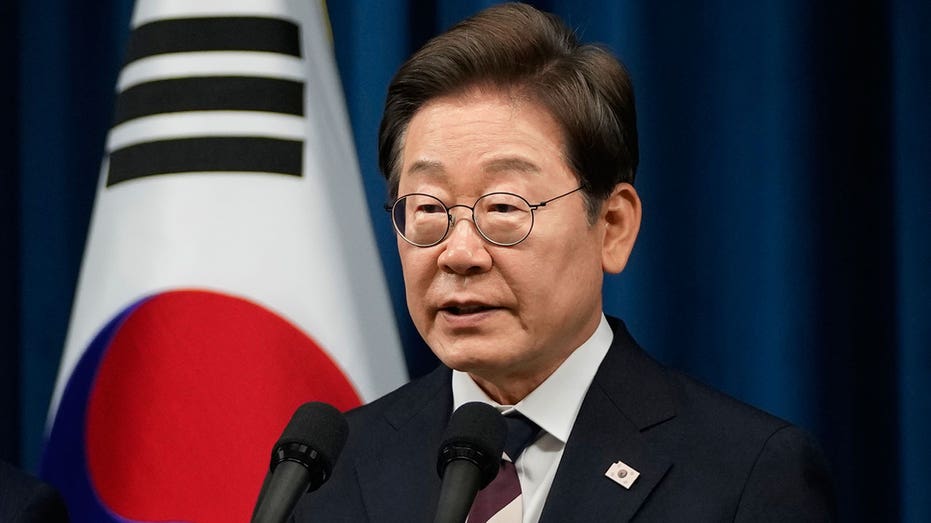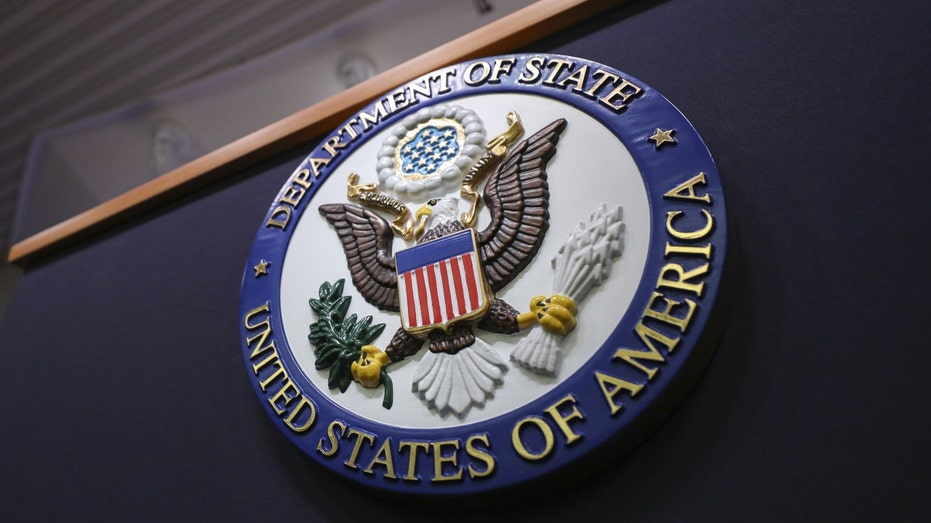‘The Big Money Show’ previews President Donald Trump’s meeting with South Korean President Lee Jae-myung as they discuss a potential deal and analyze market reaction.
President Donald Trump’s efforts to finalize a comprehensive trade agreement with South Korean President Lee Jae-myung may be upended by forthcoming South Korean digital trade legislation that is said to target U.S. tech companies.
Following his Aug. 25 meeting with Lee, Trump announced on Truth Social that he would “stand up to Countries that attack our incredible American Tech Companies” while giving “a complete pass to China’s largest Tech Companies.” Trump said the U.S. would “impose substantial additional tariffs” should countries fail to remove “discriminatory actions.”
Politico reported that the announcement followed Lee’s failure to sign a promise to halt legislation that would impact U.S. tech companies operating in South Korea.
TRUMP ISSUES ULTIMATUM, THREATENING TARRIFS OVER DIGITAL TAXES AND REGULATIONS

Newly elected South Korean President Lee Jae-myung speaks during a press conference at the presidential office on June 04, 2025 in Seoul, South Korea. (Photo by Ahn Young-Joon – Pool/Getty Images / Getty Images)
The Korean Embassy did not respond to FOX Business questions about whether Washington and Seoul had come to an understanding over South Korea’s proposed Online Platform Act, which experts warn will target U.S. companies.
A State Department spokesperson told FOX Business, “For several years, and as recently as this week, we have continued to express to the Republic of Korea the importance?of reducing the regulatory burden and non-tariff barriers facing American digital companies.? As the President announced on July 30, the ROK is completely open to trade with the United States, and we intend to uphold Korea’s commitments and ensure our economic relationship is fair, reciprocal, and future-focused.
“While we do not comment on potential legislation, the State Department is very concerned by foreign government action that could create a burden that is discriminatory, disproportionate, or designed to transfer significant funds or intellectual property from American companies to the foreign government or the foreign government’s favored domestic entities.?We continue to carefully monitor all countries that might take such an action and have expressed our concerns to countries that consider any such actions in their legislation or through other means.”

WASHINGTON D.C., UNITED STATES – JANUARY 9: A view of the United States Department of State logo in Washington D.C., United States on Jan 9, 2023. (Celal Gunes / Anadolu Agency via Getty Images / Getty Images)
The spokesperson’s statement concluded by noting, “We are standing up to countries that attack our incredible American technology companies.? Presidential Memo dated Feb 21 on Defending American Companies and Innovators From Overseas Extortion and Unfair Fines and Penalties, makes Treasury, Commerce, and USTR the leads on these actions.? We work closely with them, and other parts of the U.S. government, to protect American companies, including in the context of ongoing discussions with the ROK government on trade and investment.”
Gatestone Institute senior fellow Gordon Chang told FOX Business that “Proposed South Korean digital-platform laws are like the EU’s controversial Digital Markets Act. Both the proposed South Korean laws and the EU law are aimed at the dominant American companies. South Korean regulators have Google, Apple, Amazon, and Meta in their sights.”
Tami Overby, the former senior vice president for Asia and president of the U.S.-Korea Business Council at the U.S. Chamber of Commerce and a governmental relations partner at DGA Group told FOX Business that “the real target” of proposed Korean legislation “are the American companies.” Overby warned, “who’s not captured…are the Chinese companies, the Temu, the Shein, the AliExpress, the TikTok. They’re not captured the way the law is written.”
TRUMP URGED TO TAKE ON SOUTH KOREA OVER TECH REGULATIONS THAT TARGET US, SPARE CHINA

This photo taken on May 19, 2018 shows a general view of the Lotte tower (front C) and Namsan tower (rear C) amid the Seoul city skyline and Han river during sunset. ( ED JONES/AFP via Getty Images / Getty Images)
Chang also echoed concerns about proposed regulations unfairly targeting U.S. companies. “Chinese companies will escape regulation in Korea because they have not reached the scale of the American giants,” he said, claiming, “South Korean President Lee Jae-myung is pro-China and will be especially reluctant to enforce laws against Chinese businesses. He is, however, virulently anti-American, so he will use any excuse to target the United States.”
The Computer & Communications Industry Association (CCIA) estimates that up to $109 billion in U.S. market revenues could be affected by policies under consideration in South Korea’s National Assembly. Sectors impacted will include app stores, search engines, social networking services, operating systems, and online advertising.
Nigel Cory, a fellow at the National Bureau of Asian Research (NBR), who has closely followed the Korean Fair Trade Commission (KFTC) and its predation on American firms, told FOX Business they “have experienced discrimination for several years.”
Among the issues Cory says U.S. companies operating in South Korea face are “a lack of due process and procedural fairness” as well as “a very low bar for the KFTC to launch investigations.” Cory said KFTC’s tactics “are unnecessarily antagonistic and aggressive, with dawn raids, taking over offices, how they interview firm staff, [and] the depth and breadth of information they can request that firms hand over.”
According to Naver News, newly nominated KFTC Chairman Joo Byung-ki stated on Aug. 20 that regarding the U.S.-South Korea summit, he would prefer not to budge on the proposed Online Platform Act.
The report quoted him as saying it “should regulate not only the gap between the upper and lower classes, but also monopolies such as abuse of market dominance.”
GET FOX BUSINESS ON THE GO BY CLICKING HERE
Overby said “the Koreans are missing something really significant here, and that’s that these online platform providers basically are the marketplace for not just us subject matter experts to reach 50-51 million Korean consumers, but also for Korean small- and medium-sized companies to reach their consumers.”
#South #Korea #bill #targeting #U.S #tech #sour #trade #relations